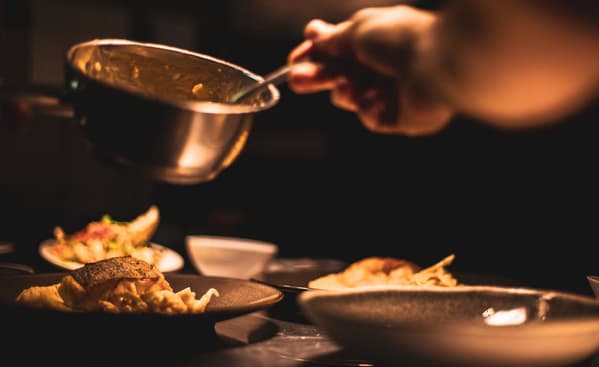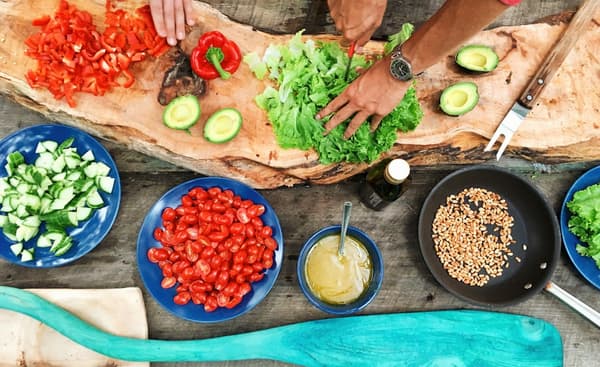Cooking: A Timeless Art and Essential Skill
Cooking is an activity that has transcended time, culture, and borders. It’s more than just preparing meals—it’s a way to express creativity, share love, and explore the world’s rich culinary traditions. In the modern world, cooking is an essential life skill that combines art and science, helping individuals lead healthier, more independent lives. This article delves into the multifaceted world of cooking, exploring its artistic side, its practical value, and why it remains a cornerstone of human culture.
The Art of Cooking: Creativity in the Kitchen
Cooking is often compared to art because of its limitless opportunities for creativity. From selecting ingredients to plating a dish, every step in the process allows room for personal expression. Just like a painter uses a palette, a cook works with flavors, textures, and colors to create something unique and memorable.
Experimentation is the heart of culinary creativity. By trying different combinations of ingredients, you can discover new flavors and textures that elevate your dishes. For example, blending sweet and savory elements, like adding a touch of honey to a spicy marinade, can create an unforgettable balance. Cooking also allows you to explore various cuisines from around the world, bringing the spices of India, the herbs of Italy, or the techniques of Japan into your kitchen.
Cooking isn’t just about the food—it’s about storytelling. A recipe passed down through generations connects you to your roots, while a dish inspired by your travels can evoke cherished memories. When you share these creations with others, you invite them into your personal narrative, strengthening bonds and creating new stories together.
The artistic side of cooking also lies in presentation. A thoughtfully plated dish can make an ordinary meal feel extraordinary. Garnishing with fresh herbs, arranging food in appealing shapes, and paying attention to color contrast can transform a simple recipe into a feast for the eyes as well as the palate.
The Practical Value of Cooking: Health, Savings, and Independence
Beyond its artistic appeal, cooking is a practical skill with significant benefits. In an era of fast food and convenience meals, the ability to prepare your own food empowers you to make healthier choices, save money, and gain independence.
One of the most immediate advantages of cooking is improved health. Preparing meals at home gives you control over ingredients, allowing you to limit processed foods, reduce added sugars, and ensure balanced nutrition. For example, a homemade salad dressing made from olive oil, lemon juice, and herbs is far healthier than many store-bought options filled with preservatives and hidden calories. Cooking also enables you to cater to specific dietary needs, whether you’re managing allergies, following a specific diet, or simply aiming to eat more whole foods.
Cooking at home is also cost-effective. While dining out or ordering takeout can be convenient, the expenses quickly add up. By purchasing fresh ingredients and preparing meals yourself, you can significantly reduce your food budget. For instance, a hearty homemade soup made from seasonal vegetables and inexpensive legumes can cost a fraction of what you’d pay for a similar dish at a restaurant. Additionally, cooking in bulk and freezing portions for later use helps you save time and money in the long run.
Another often-overlooked benefit of cooking is the independence it fosters. Knowing how to cook means you’re not reliant on packaged meals or external sources for nourishment. This skill is particularly valuable for young adults moving out on their own, individuals striving to adopt healthier lifestyles, or anyone who values self-sufficiency. Moreover, the confidence gained from mastering new recipes and techniques can carry over into other areas of life, encouraging a proactive and resourceful mindset.

The Science of Cooking: Mastering Techniques and Ingredients
Cooking is as much a science as it is an art. Understanding how ingredients interact and applying the right techniques can make a significant difference in the outcome of a dish.
At its core, cooking is about heat and transformation. Whether you’re searing a steak to achieve the Maillard reaction or simmering a broth to extract flavors, understanding the role of heat allows you to harness its effects. For example, high heat creates a crispy crust on roasted vegetables, while low, slow cooking tenderizes tough cuts of meat.
The science of flavor is another fascinating aspect of cooking. Balancing the five basic tastes—sweet, salty, sour, bitter, and umami—creates complex and satisfying dishes. A pinch of salt can enhance the sweetness of a dessert, while a splash of vinegar can brighten a savory stew. Learning to balance these elements allows you to fine-tune your recipes and adapt them to your preferences.
Ingredient knowledge is equally important. Fresh, high-quality ingredients are the foundation of good cooking. Knowing when to use dried herbs versus fresh ones, understanding the ripeness of fruits and vegetables, and learning about different cuts of meat or types of grains can elevate your culinary skills. Additionally, experimenting with alternative ingredients, such as plant-based proteins or gluten-free flours, can open up new possibilities for dietary inclusivity.
Cooking techniques also play a crucial role. Methods like sautéing, braising, grilling, and steaming offer distinct results and flavors. For instance, steaming preserves the nutrients in vegetables, while grilling imparts a smoky char. Mastering these techniques gives you versatility in the kitchen and helps you create a wide variety of dishes.
A Lifelong Journey of Flavor and Connection
Cooking is a skill that combines creativity, practicality, and science. It’s an art form that allows you to express yourself, a practical tool that fosters health and independence, and a scientific endeavor that deepens your understanding of food.
Whether you’re a novice learning to boil pasta or an experienced chef perfecting your soufflé, cooking is a lifelong journey filled with discovery and joy. It’s a way to connect with culture, bond with loved ones, and take control of your health and well-being.
So, roll up your sleeves, gather your ingredients, and step into the kitchen. Every dish you create is an opportunity to learn, grow, and savor the simple yet profound act of transforming ingredients into nourishment for both body and soul.
